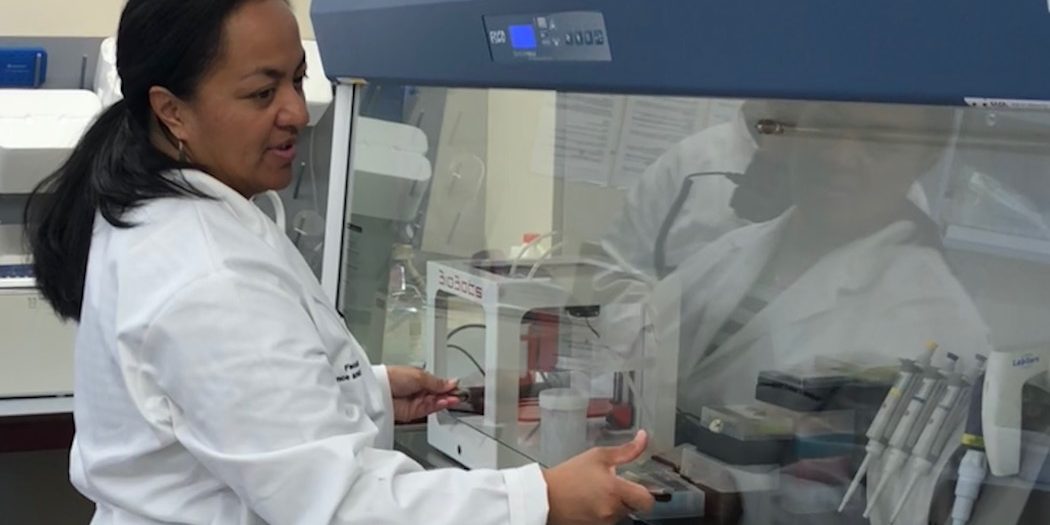Dr. Jonni Koia is exploring the potential of traditional Maori medicinal plants – rongoā rākau – as anti-diabetic agents.
Completing her PhD in Queensland, Dr. Koia led a world-first study to identify the genes involved in pineapple ripening. This research discovered genes that could be used to improve nutritional and dietary intake of plant foods as well as gene regions that could be used as molecular tools. Now, in partnership with Te Kahui Rongoā Trust and supported by a Health Research Council Māori Postdoctoral Fellowship, she is looking to understand the potential of rongoā rākau extracts to treat Type 2 diabetes.
Dr. Koia has innovatively incorporated traditional kaupapa Māori methodologies with biomedical and molecular cell research. Her investigations will help develop safe natural supplementary products for diabetes management, as well as preserving and protecting the mataurangā Māori of the rongoā rākau involved for current and future generations.
Dr. Jonni Koia
University of Waikato
Medical Science Award
Dr. Jonni Koia is exploring the potential of traditional Maori medicinal plants – rongoā rākau – as anti-diabetic agents.
Completing her PhD in Queensland, Dr. Koia led a world-first study to identify the genes involved in pineapple ripening. This research discovered genes that could be used to improve nutritional and dietary intake of plant foods as well as gene regions that could be used as molecular tools. Now, in partnership with Te Kahui Rongoā Trust and supported by a Health Research Council Māori Postdoctoral Fellowship, she is looking to understand the potential of rongoā rākau extracts to treat Type 2 diabetes.
Dr. Koia has innovatively incorporated traditional kaupapa Māori methodologies with biomedical and molecular cell research. Her investigations will help develop safe natural supplementary products for diabetes management, as well as preserving and protecting the mataurangā Māori of the rongoā rākau involved for current and future generations.





